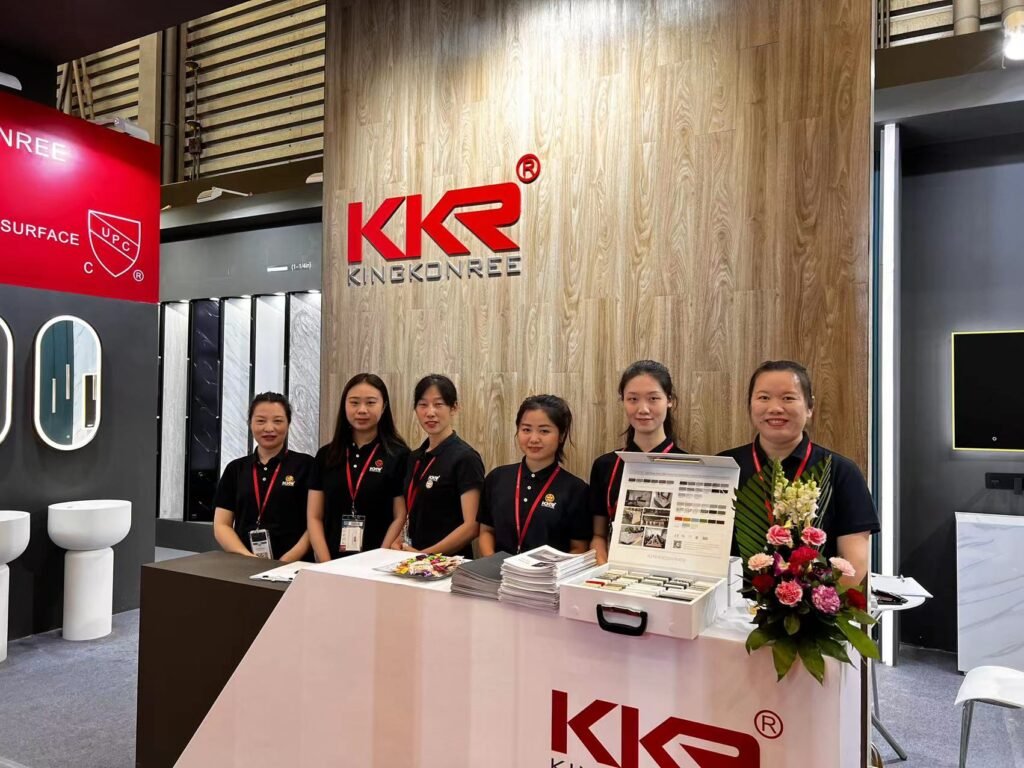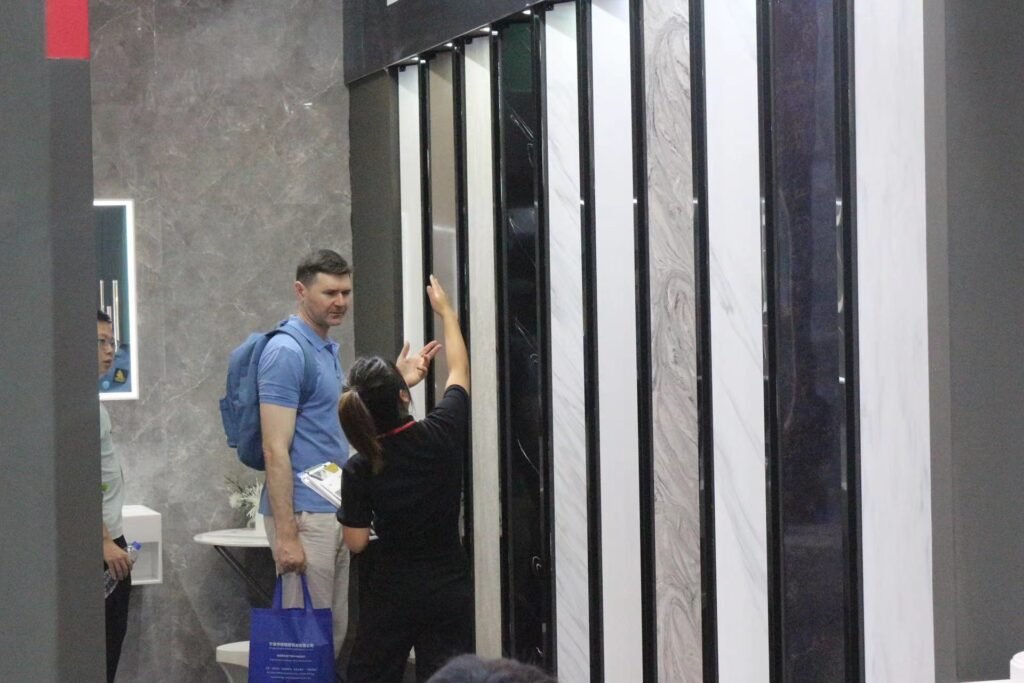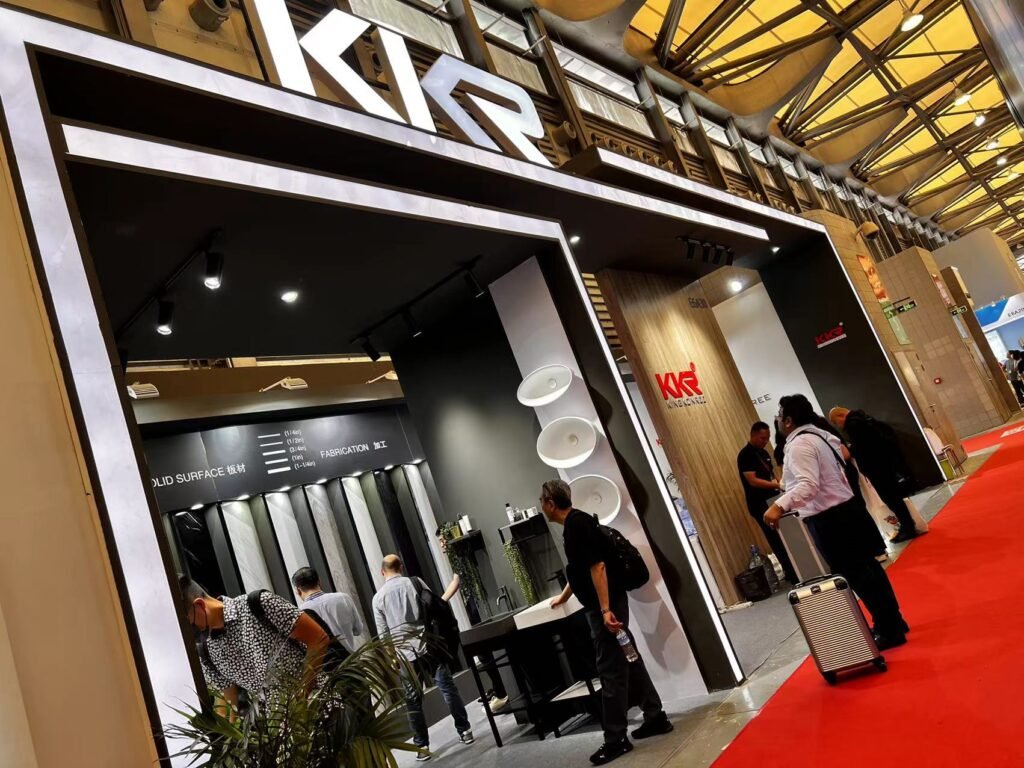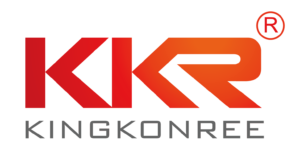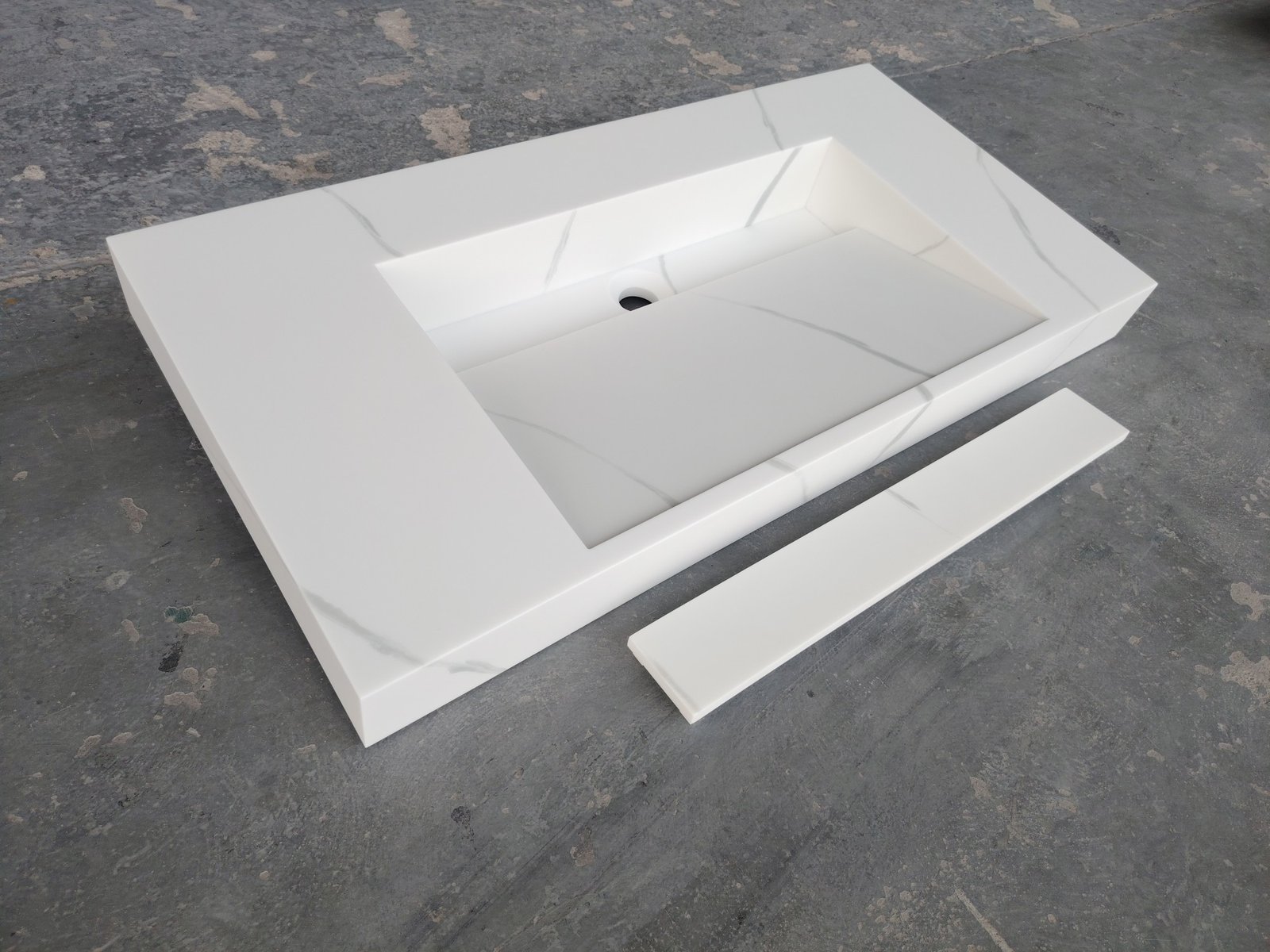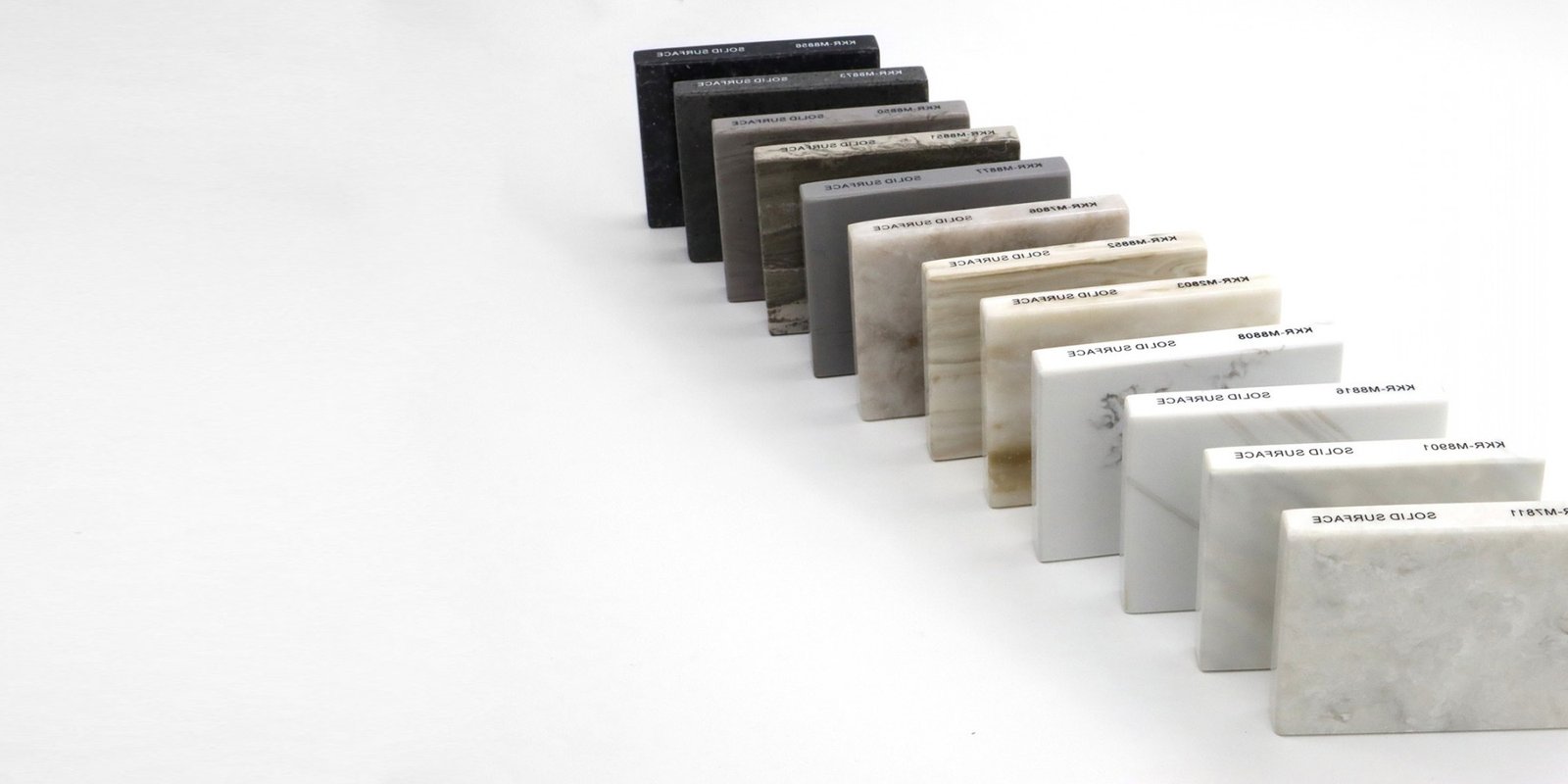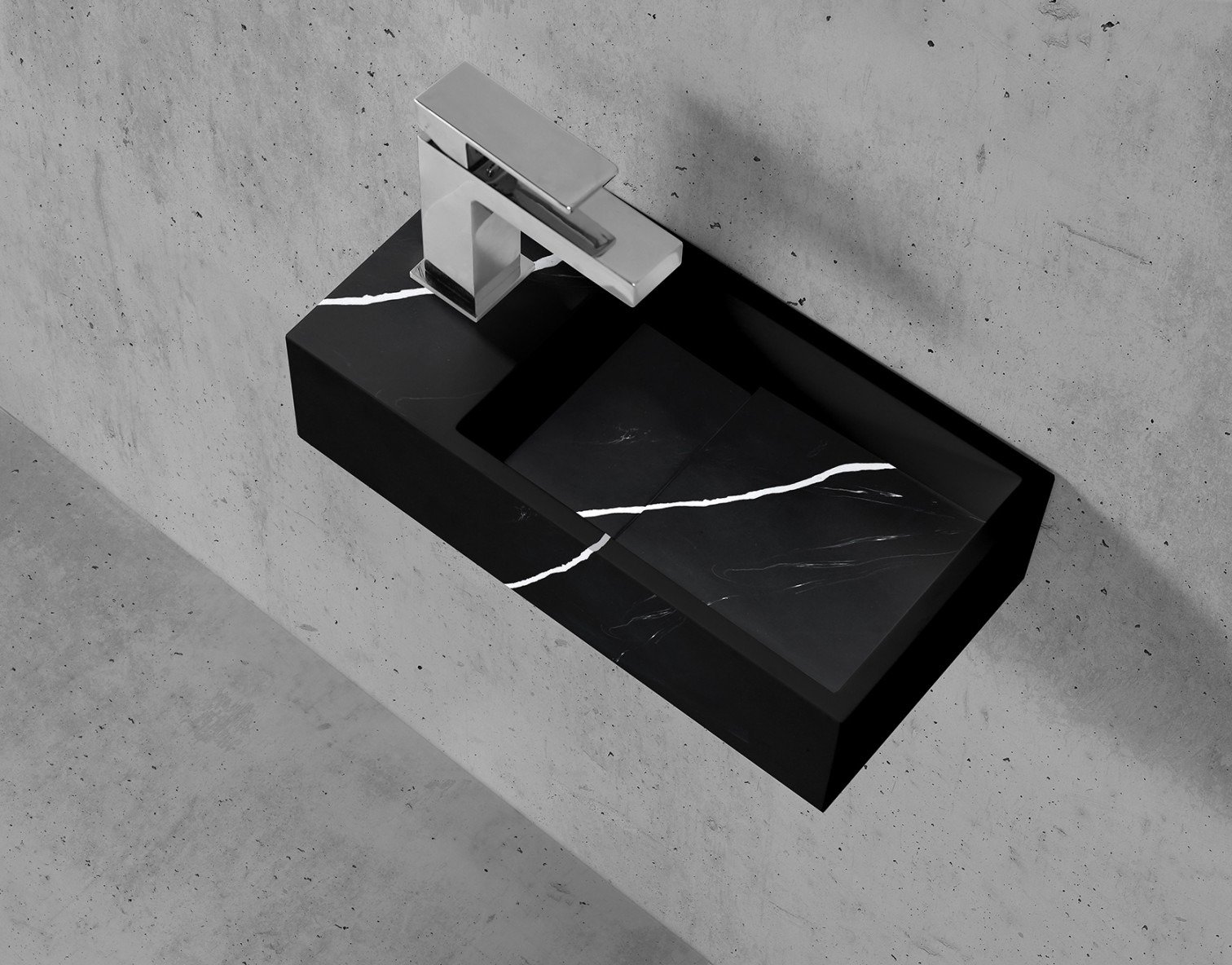Have you ever wondered what makes a healthcare facility not just functional but also safe and aesthetically pleasing? What goes into the decision-making process when choosing materials for countertops, walls, or even reception desks in hospitals and clinics?
Solid surfaces are increasingly becoming the go-to material for healthcare settings, offering a unique blend of hygiene, durability, and design flexibility. These synthetic, non-porous materials meet the stringent requirements of healthcare environments, making them an ideal choice.
So, if you’re intrigued by how the right choice of material can make a significant difference in healthcare, keep reading.
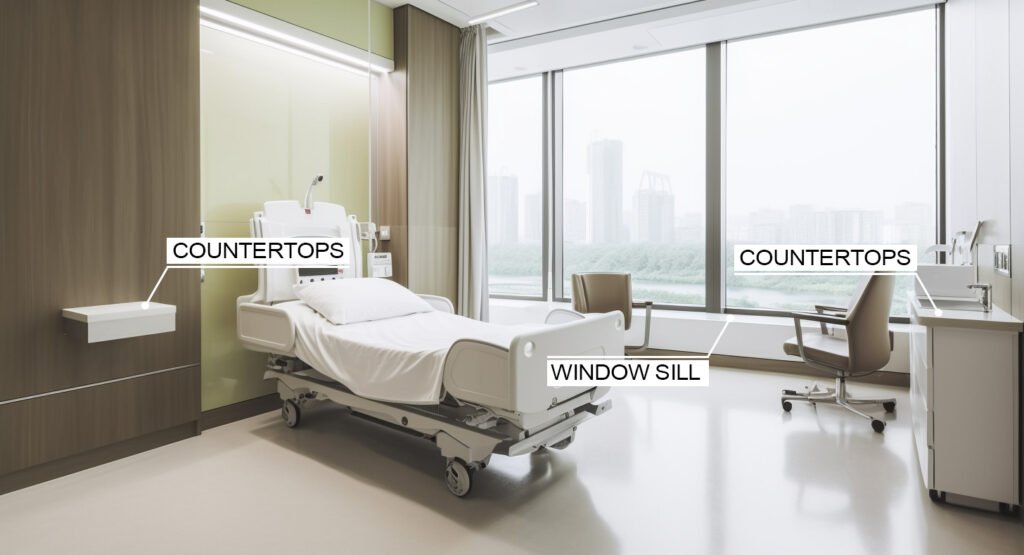
What is Solid Surface?
Definition and Composition
A solid surface is a synthetic material made from a combination of natural minerals like aluminum trihydrate derived from bauxite ore, and acrylic or polyester resins. The material is cast into sheets that can be easily fabricated into various shapes and sizes. Some high-end solid surfaces may also contain other materials like quartz or bio-based resins to enhance specific properties.

Key Properties: Non-porous, Seamless, and Durable
One of the standout features of solid surfaces is their non-porous nature, which means they do not have microscopic pores where bacteria and mold can grow. This makes them exceptionally hygienic and easy to clean—qualities that are essential in healthcare settings.
The seamless construction of solid surfaces allows for a smooth transition between sections, eliminating crevices where dirt and germs can accumulate. This is particularly beneficial in areas that require frequent cleaning and sterilization.

Durability is another key attribute of solid surfaces. They are resistant to most types of damage, including scratches, stains, and impacts. Even if the surface does get damaged, it can often be easily repaired by sanding and polishing, making it a long-lasting option for high-traffic areas in healthcare facilities.
Benefits of Using Solid Surface in Healthcare
The use of solid surfaces in healthcare settings offers a multitude of benefits that go beyond mere aesthetics. These advantages make it an increasingly popular choice among healthcare administrators, architects, and designers. Here are some of the key benefits:
a. Hygiene and Infection Control
Non-porous Nature Prevents Bacterial Growth


One of the most critical factors in healthcare settings is the prevention of bacterial and viral infections. Solid surfaces are non-porous, meaning they lack the microscopic pores where bacteria and viruses can thrive. This makes them an excellent choice for areas that require high levels of hygiene, such as operating rooms, patient rooms, and laboratories.
Easy to Clean and Disinfect
The smooth, non-porous surface of solid materials makes them incredibly easy to clean. They can be disinfected using a wide range of cleaning agents without suffering damage, making them ideal for healthcare settings where stringent cleaning protocols are in place.
b. Durability and Longevity
Resistant to Wear and Tear
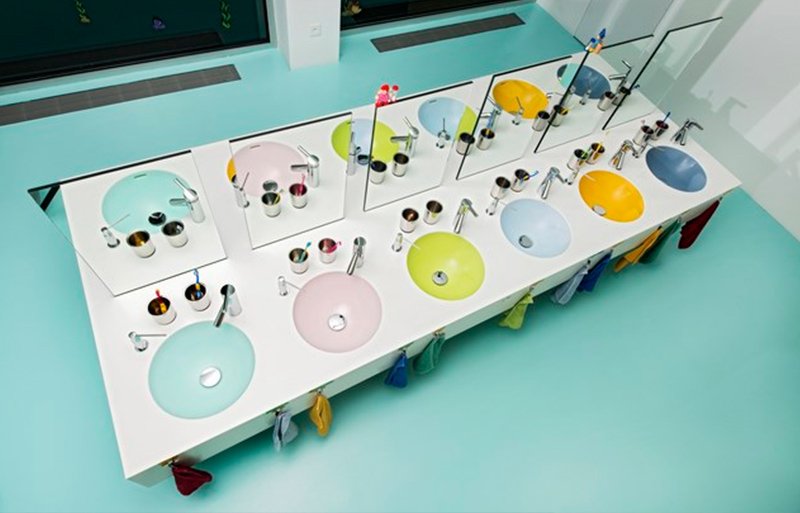

Solid surfaces are highly durable and can withstand the rigors of a busy healthcare environment. They are resistant to scratches, stains, and impacts, making them ideal for high-traffic areas like waiting rooms, corridors, and nurse stations.
Long Lifespan with Minimal Maintenance
Due to their durability, solid surfaces require minimal maintenance. Even if they do get damaged, they can often be repaired on-site, extending their lifespan and reducing the need for replacements. This makes them a cost-effective choice in the long run.
c. Aesthetics and Design Flexibility
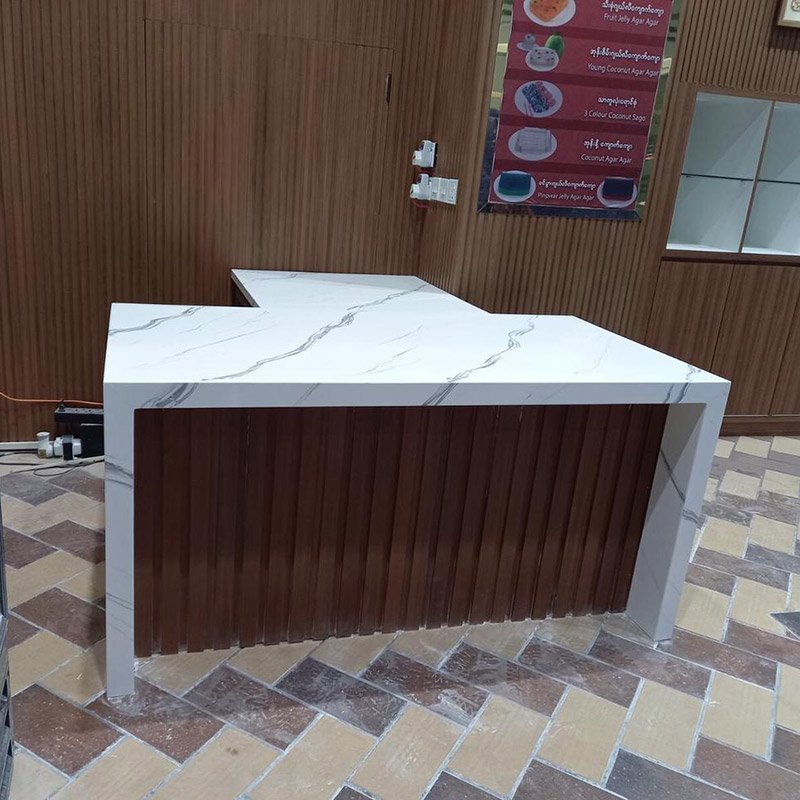
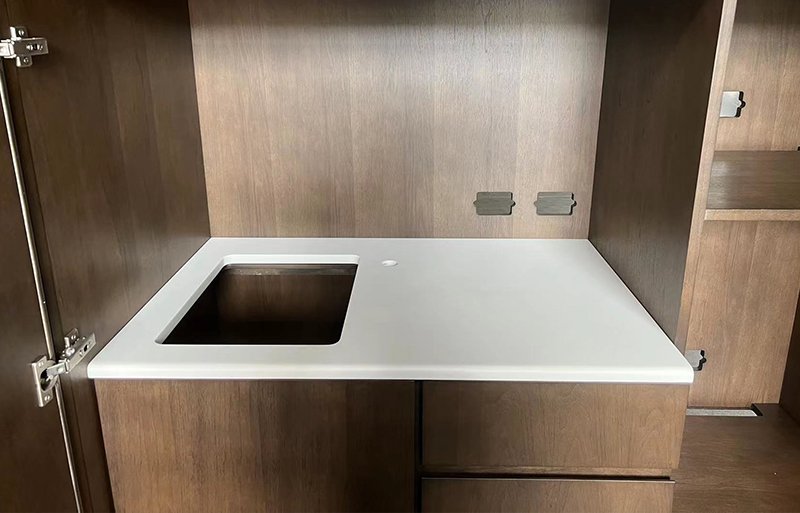
Wide Range of Colors and Patterns
Solid surfaces come in a wide array of colors, patterns, and finishes, allowing designers to create visually appealing spaces that can also have therapeutic benefits for patients.
Ability to Create Custom Shapes and Designs
The malleability of solid surface materials allows for custom fabrication into various shapes and sizes. This design flexibility can be particularly useful in creating specialized healthcare furniture or fixtures that meet the unique needs of a facility.
d. Safety and Comfort
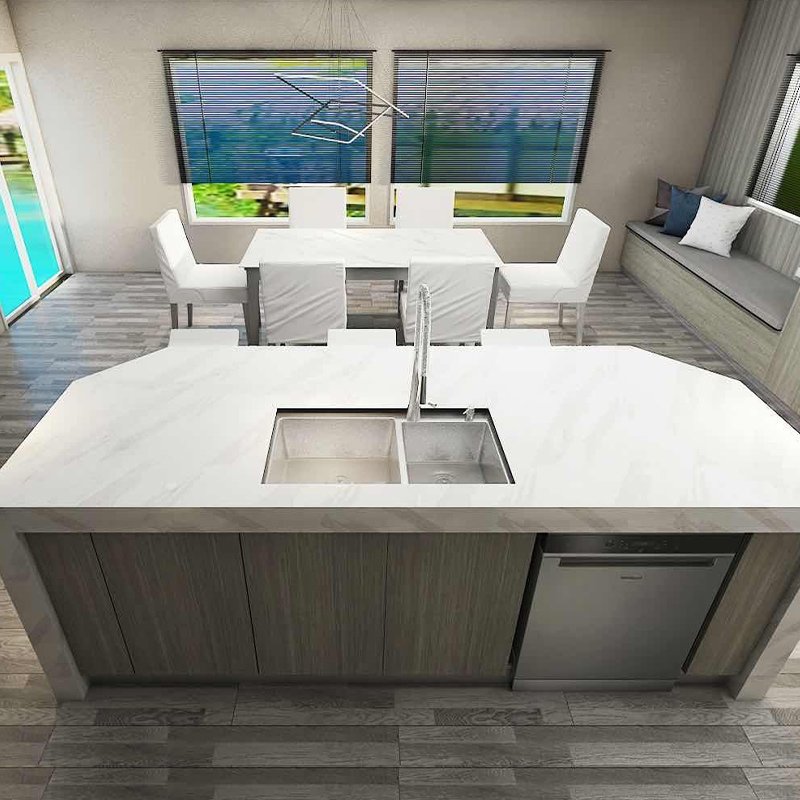
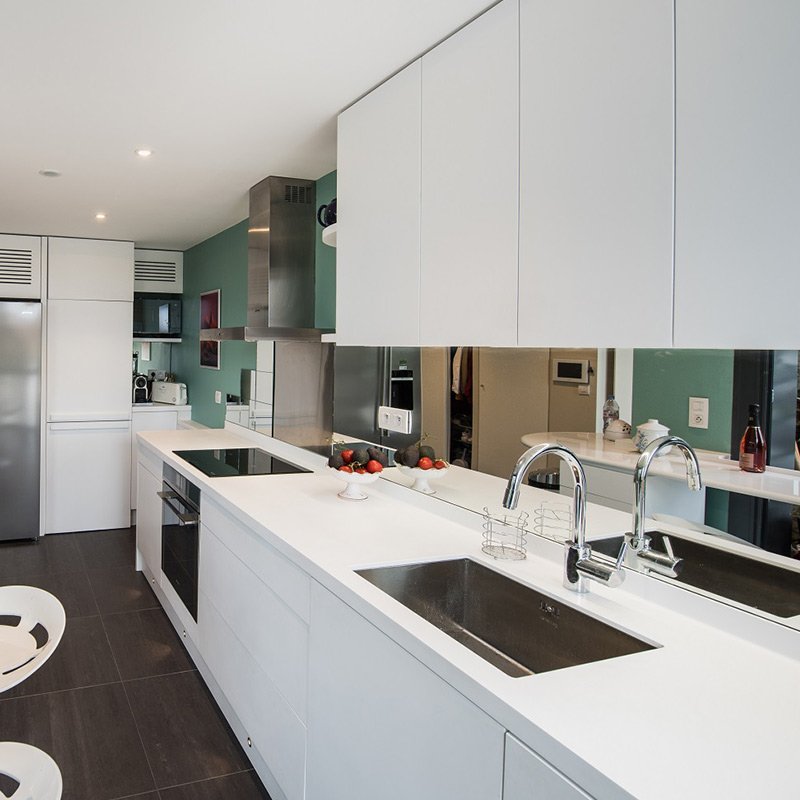
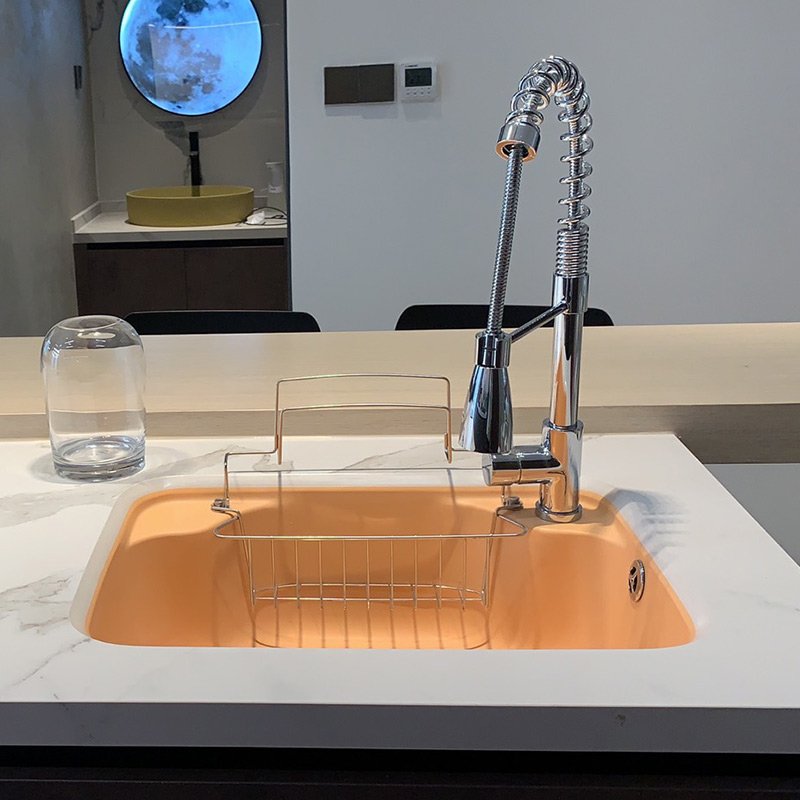
Non-toxic and Chemically Stable
Solid surfaces are non-toxic and do not emit harmful fumes, making them safe for both healthcare workers and patients. Their chemical stability also means they won’t react with medical substances or cleaning agents.
Seamless Design Reduces Injury Risk
The seamless nature of solid surfaces eliminates sharp edges and corners, reducing the risk of injury. This is particularly important in settings like pediatric wards, where both patient safety and comfort are paramount.
Applications of Solid Surface in Healthcare
Solid surfaces are not just versatile in terms of their properties; they are also incredibly versatile in their applications within healthcare settings. From countertops to wall claddings, solid surfaces can be used in a variety of ways to enhance both functionality and aesthetics. Here are some of the key applications:
a. Countertops and Work Surfaces
Laboratories, Pharmacies, and Nurse Stations
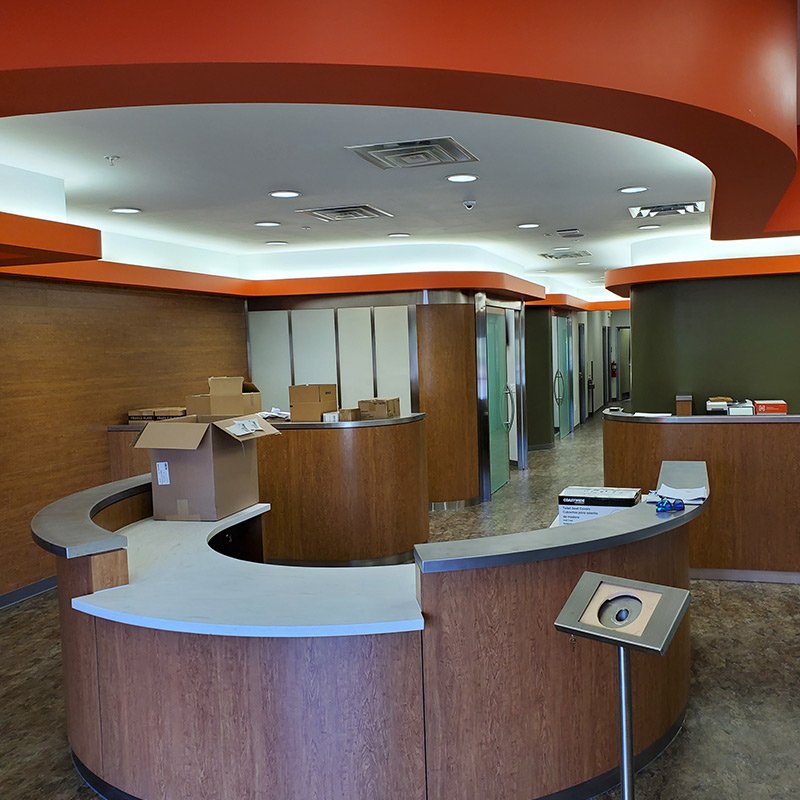
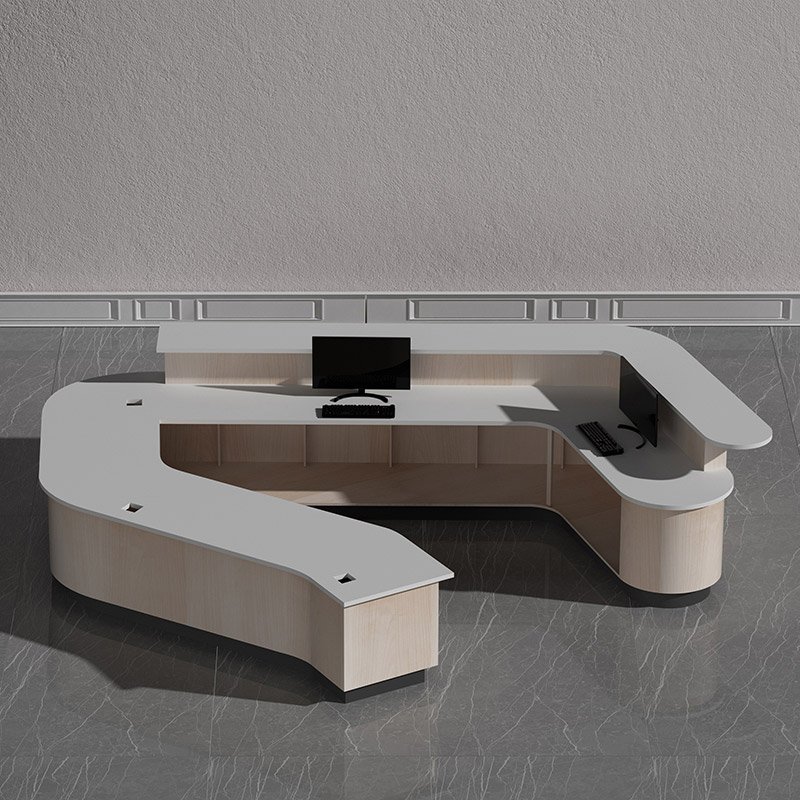
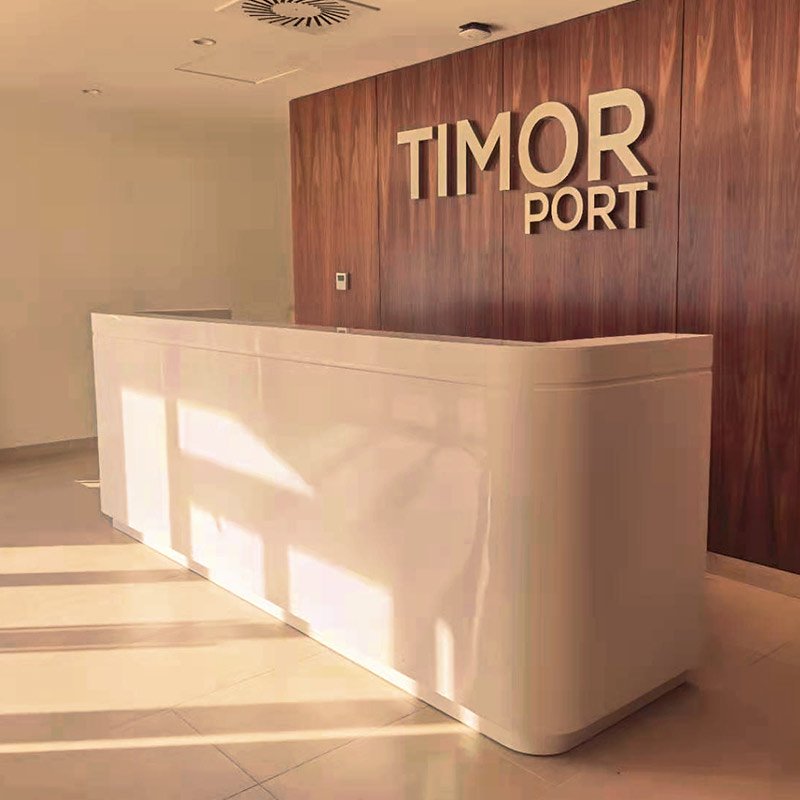
Solid surfaces are an ideal choice for countertops in laboratories, pharmacies, and nurse stations. Their non-porous nature makes them resistant to chemical spills and easy to sterilize, ensuring a hygienic workspace. The durability of the material also means it can withstand the heavy use that these areas typically see.
b. Wall Cladding and Protection
High-Traffic Areas, Operating Rooms, and Patient Rooms

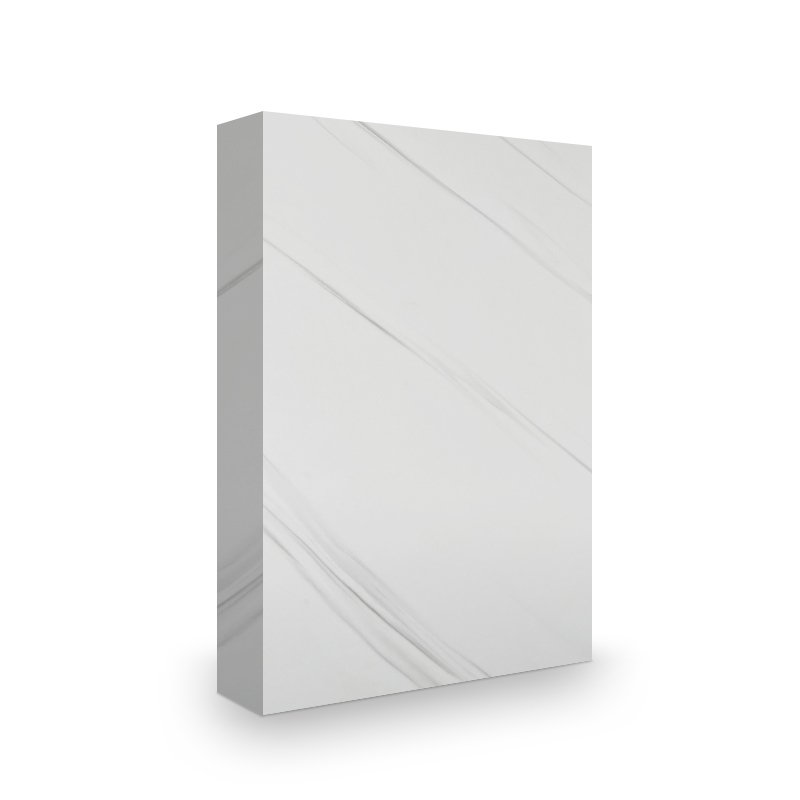
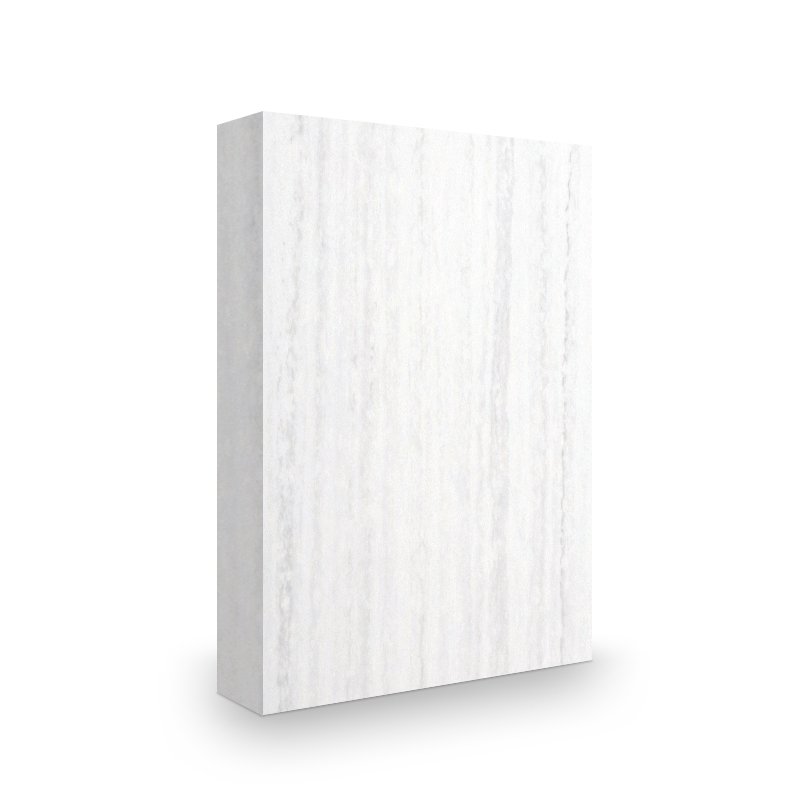
Wall cladding made from solid surface materials offers both aesthetic and functional benefits. In high-traffic areas, it provides added durability and is easy to clean. In operating rooms and patient rooms, the non-porous nature of the material aids in infection control.
c. Sinks and Wash Stations
Integrated Design for Easy Cleaning
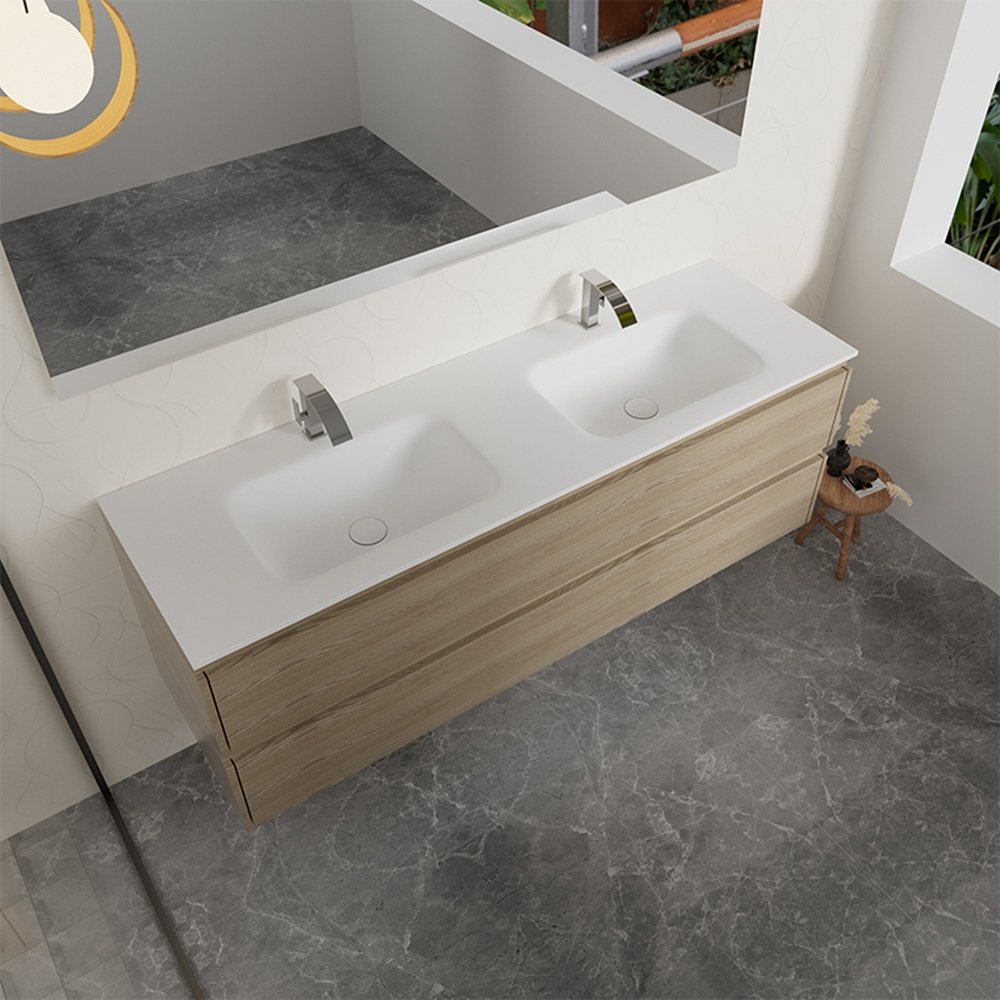
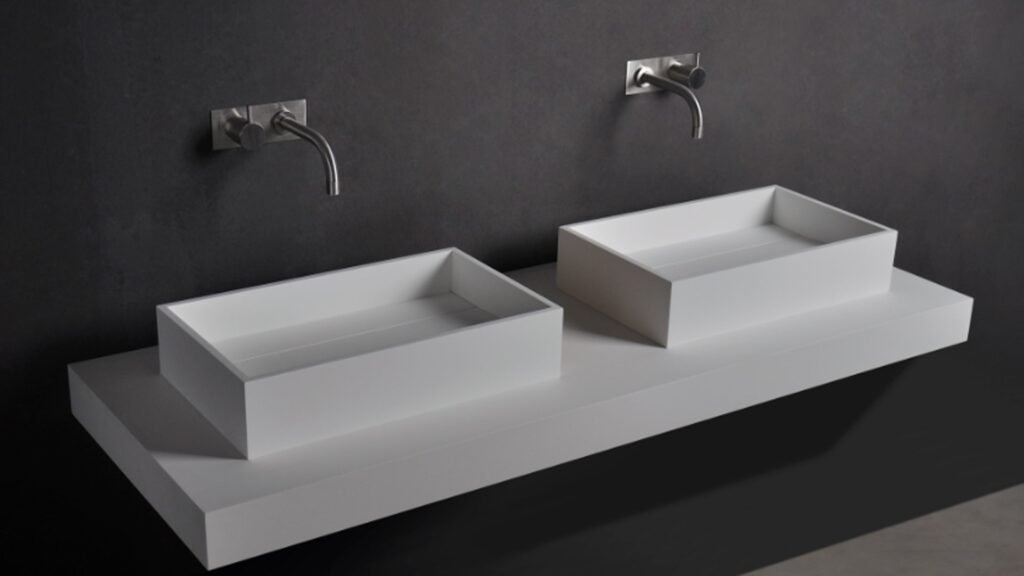

One of the unique advantages of solid surfaces is the ability to create integrated sinks and countertops. This seamless design eliminates crevices where bacteria can grow, making the sinks and wash stations easy to clean and disinfect.
d. Reception Desks and Waiting Areas
Enhancing Patient Experience

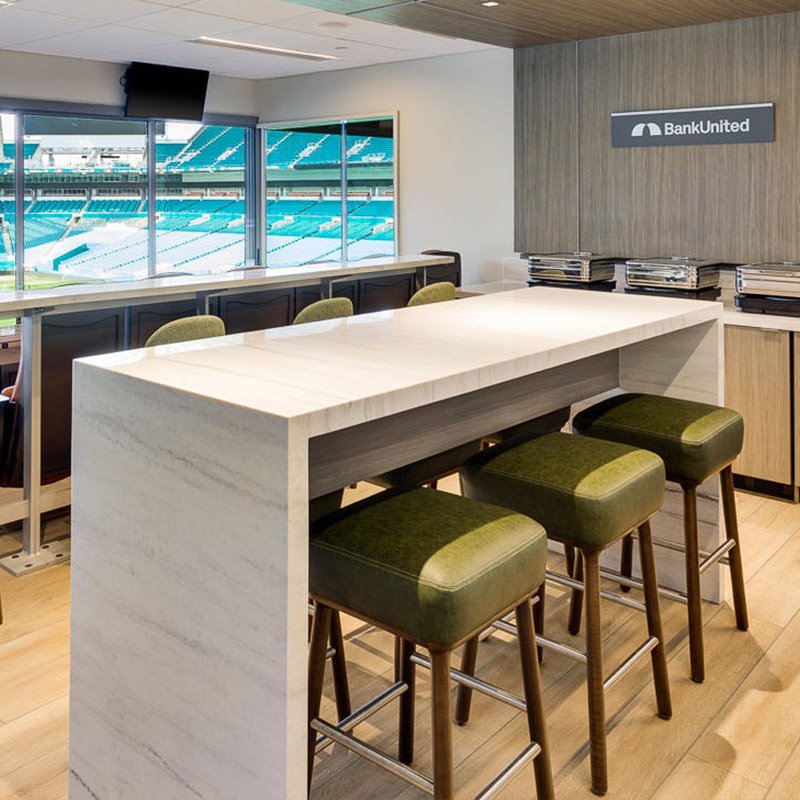
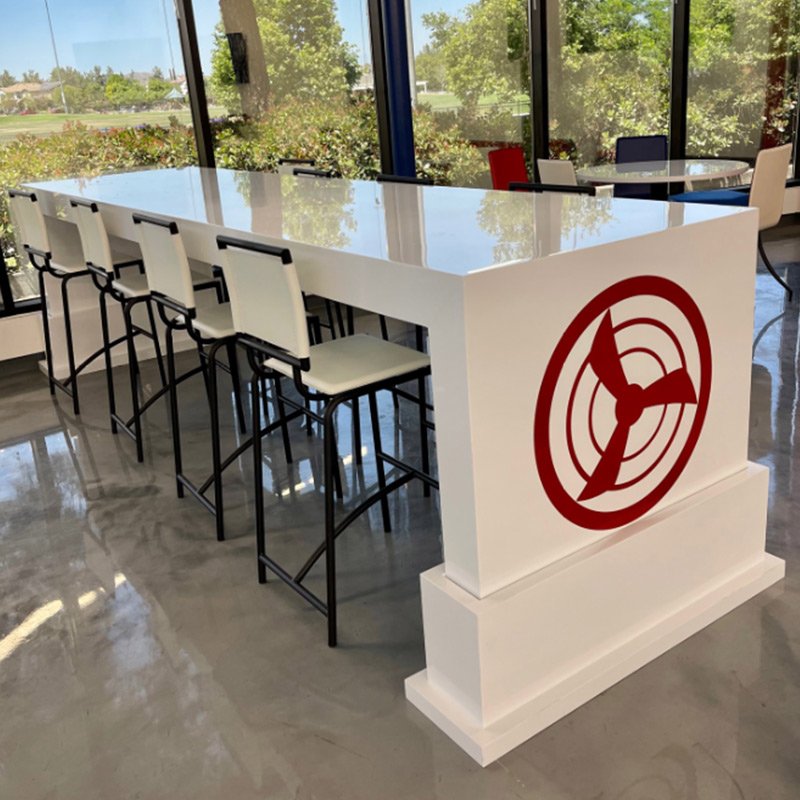
First impressions are often made at the reception desk, and a well-designed, aesthetically pleasing desk can greatly enhance a patient’s experience. Solid surfaces offer a wide range of design options, from colors and patterns to custom shapes, allowing healthcare facilities to create welcoming and comfortable waiting areas.
Comparison with Other Materials
When considering materials for healthcare settings, it’s essential to weigh the pros and cons of each option. Here’s how solid surfaces stack up against other commonly used materials like laminate, granite, and stainless steel.
Pros and Cons of Solid Surface vs. Other Materials

- Solid Surface
- Pros: Non-porous, easy to clean, durable, design flexibility
- Cons: Higher initial cost, may require specialized maintenance
- Laminate
- Pros: Cost-effective, wide range of designs
- Cons: Not as durable, can be porous, limited customization
- Granite
- Pros: Natural look, durable, heat-resistant
- Cons: Porous, requires regular sealing, heavy
- Stainless Steel
- Pros: Extremely durable, modern look, easy to clean
- Cons: Industrial appearance, can dent, shows fingerprints
Cost-effectiveness and Return on Investment

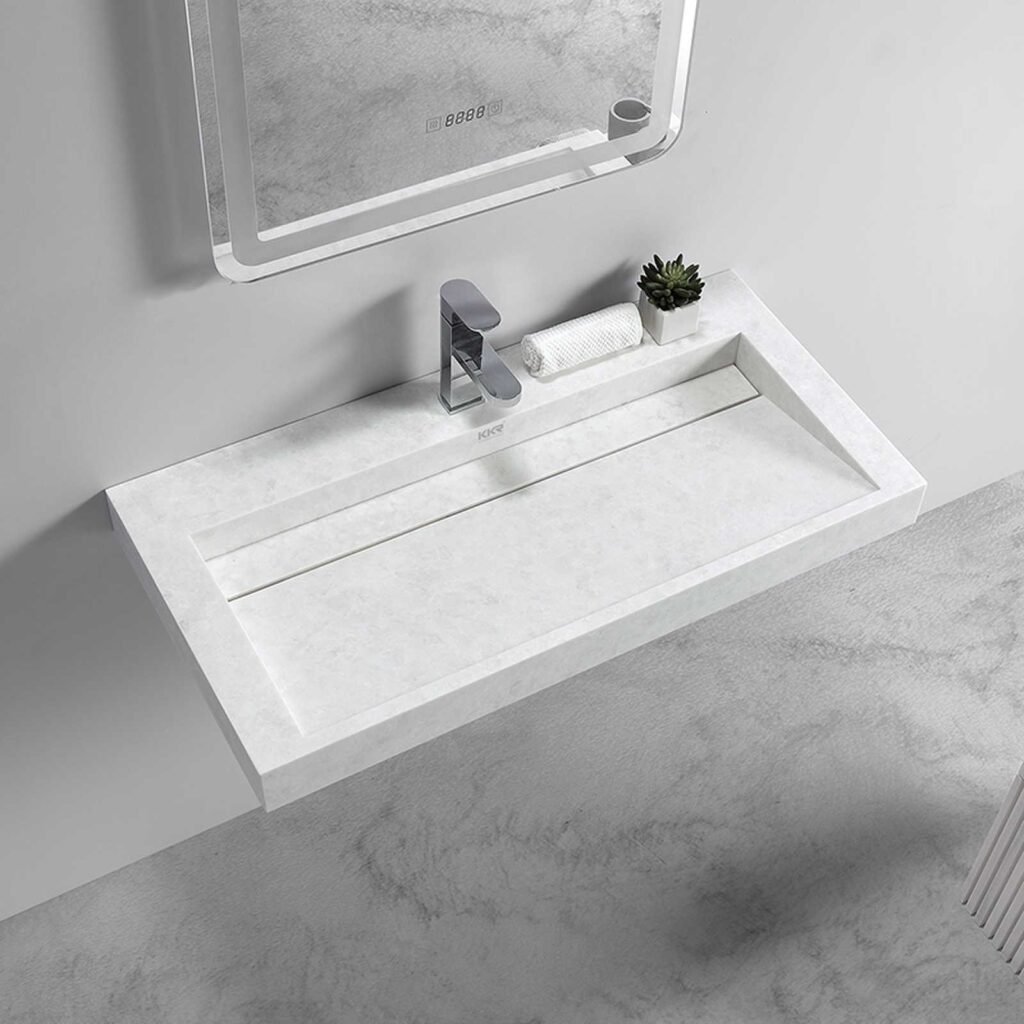
While solid surfaces may have a higher initial cost compared to materials like laminate, their durability and low maintenance needs often result in a better return on investment in the long run. The ability to repair and refurbish solid surfaces also adds to their cost-effectiveness.
Conclusion
Choosing the right material is crucial in healthcare settings. Solid surfaces offer a compelling mix of benefits, making them a top choice for modern healthcare facilities.
KKR(KingKonree) is a leading manufacturer and supplier of high-quality solid surfaces, renowned for our innovation and commitment to sustainability. With years of experience in serving healthcare facilities, we understand the unique requirements of this sector. Our products offer unparalleled hygiene, durability, and design flexibility, making them the ideal choice for any healthcare project.
Ready to elevate your healthcare facility with top-notch solid surfaces? Don’t hesitate—inquire with us today for your next healthcare project.
